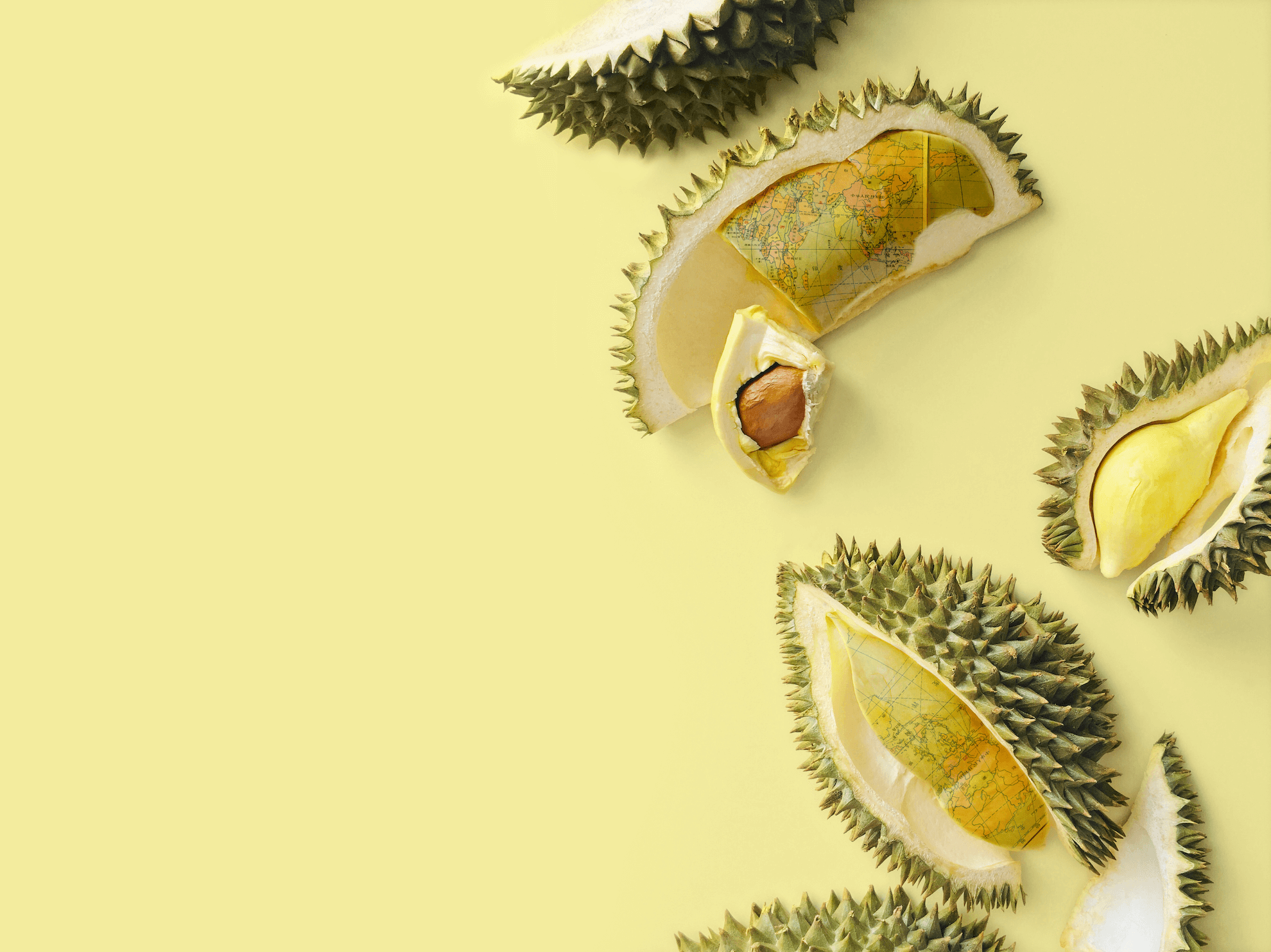
The last colour of the rainbow; a rich cultural custard with a hint of turpentine
#purple #durian #theoutsider #fruitking
As an outsider, you're always going to be looked at; viewed as a cultural oddity from abroad that people cannot comprehend. Within that inspires a sense of freedom. Because no matter if white or the colour purple, your cultural skin will be viewed just as peculiar and different. One can either continue to act vanilla or go full durian. Remember, no matter what you end up being; you will still be stared at just the same. Why not be purple AF? I imagine myself as purple, and that purpleness inspires me to go places I never thought imaginable.
“In 1440, on a large Indonesian island west of Java, a Sumatran orangutan witnessed the first introduction of Durian into the western palate by the Italian explorer Niccolò de' Conti. And although that predates the fall of Constantinople, the end of the hundred years war, and the introduction of Islam to the west, by thirteen years, the finding of Durian might surpass all those events for being the most significant affair of the 15th century. For De' Conti introduced a fruit to the world that would forever change how we understand taste.”
Durian and Being an Outsider in Another Country
Durian is a fruit that is known for its distinct taste and odour. It is a fruit that is either loved or hated, with very few people in between. Similarly, being an outsider in another country can bring about strong emotions and opinions from both the outsider and the locals. Here are some ways that durian can be compared to being an outsider in another country:
1. Initial reaction
The first time someone tries durian, their initial reaction is usually based on its strong and pungent smell. Similarly, when someone first arrives in a new country, their initial reaction is often based on their first impressions, which can be influenced by the culture shock or language barrier.
2. Acquired taste
Durian is an acquired taste, meaning that the more someone tries it, the more they may come to enjoy it. Similarly, being an outsider in another country may require time and effort to adjust to the local customs and way of life. However, the more someone immerses themselves in the culture, the more they may come to appreciate it.
3. Misunderstandings
Durian is often misunderstood by those who have never tried it, as its smell can be off-putting. Similarly, being an outsider in another country can lead to misunderstandings between the outsider and the locals, as cultural differences and language barriers can cause confusion.
4. Unique experience
Despite its polarizing reputation, durian is a unique fruit that cannot be found anywhere else in the world. Similarly, being an outsider in another country can be a unique experience that allows someone to gain a new perspective and appreciation for different cultures.
In conclusion, while durian and being an outsider in another country may seem like vastly different things, there are some interesting similarities that can be drawn between the two. Both require an open mind and willingness to embrace something new and unfamiliar.
Why the colour purple?
The colour purple is often associated with royalty and luxury due to its rarity and difficulty to produce. Similarly, being an outsider in a foreign country can be seen as a unique and rare experience that not everyone has the opportunity to encounter.
Moreover, just as the colour purple stands out among other colours due to its unique hue, being an outsider can also make one stand out and be noticed in a foreign country. This can be both positive and negative, as it can lead to admiration and curiosity but also to feelings of isolation and exclusion.
Finally, purple is often seen as a colour that symbolises mystery and ambiguity, much like the experience of being an outsider in a foreign country. The unfamiliarity of the culture and language can create a sense of confusion and uncertainty, leading to a feeling of being lost in an unknown environment.
In conclusion, the colour purple and being an outsider in a foreign country share similarities in their rarity, uniqueness, and ability to stand out. Both can evoke admiration and curiosity but also feelings of isolation and confusion.



